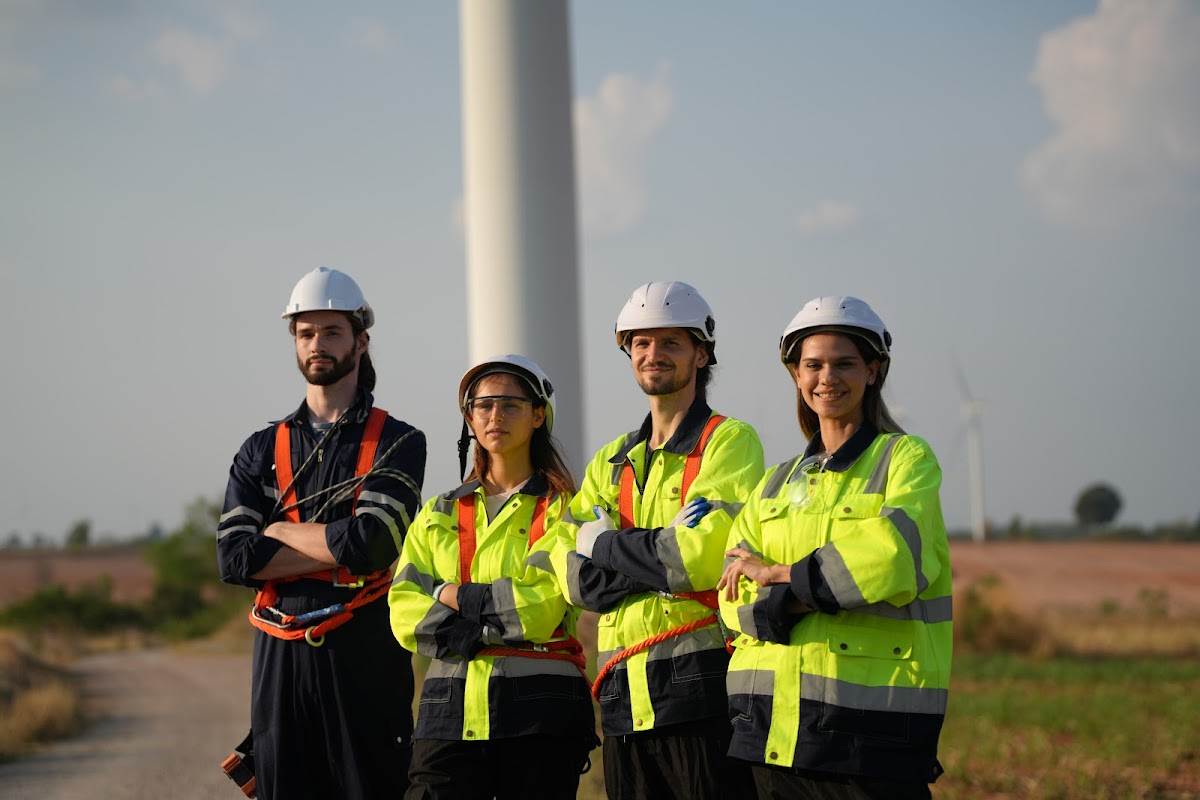Industrial power generation facilities are prime targets for cyber attacks, given their critical role in supporting essential services and infrastructure. A successful cyber attack on a power generation facility can have far-reaching consequences, from disrupting electricity supply to endangering public safety.
More than ever before, cyber attacks on industrial control systems (ICS) have increased in frequency and sophistication, underscoring the urgent need for robust cybersecurity measures.
Understanding industrial cybersecurity is essential for safeguarding these vital assets and ensuring the reliable operation of power generation facilities. From protecting industrial control systems (ICS) to mitigating cyber threats and vulnerabilities, industrial cybersecurity encompasses a wide range of measures and practices aimed at defending against potential attacks.
Get ready to learn about industrial cybersecurity and why it’s so important for keeping power generation systems safe and strong.
Industrial Cybersecurity And Its Role In Secure Power Generation
Industrial cybersecurity, often referred to as ICS cybersecurity, is paramount in safeguarding critical infrastructure such as power generation facilities. Industrial cyber focuses on protecting industrial control systems (ICS) and operational technology (OT) from cyber threats.
Industrial power generation systems consist of several key components and infrastructure elements. These typically include power plants, which house the machinery and equipment necessary for generating electricity, such as turbines, generators, and control systems. Transmission and distribution networks then transport electricity from power plants to end-users, such as homes, businesses, and industrial facilities.
Additionally, industrial power generation systems may incorporate advanced technologies for monitoring and controlling operations, such as Supervisory Control and Data Acquisition (SCADA) systems and Industrial Internet of Things (IIoT) devices. These components work together to ensure the efficient and reliable generation, transmission, and distribution of electricity.

The Need For Cybersecurity Expertise In Industrial Control Systems
As industrial systems become more digitized and interconnected, the risk of cyber attacks continues to grow. With the increasing sophistication of cyber attacks targeting critical infrastructure, the stakes have never been higher. A cyber attack on industrial control systems can have catastrophic consequences, leading to disruptions in power generation and potentially impacting public safety.
This underscores the importance of having cybersecurity experts who specialize in industrial control systems. These professionals are trained to assess risks, identify vulnerabilities, and implement effective security measures to mitigate cyber threats.
By conducting thorough assessments, organizations can identify potential vulnerabilities in their industrial control systems and take proactive steps to address them before they are exploited by malicious actors. Industrial cyber is a critical component of ensuring the reliable and secure operation of power generation facilities. By prioritizing cybersecurity in industrial settings and investing in the expertise needed to defend against cyber threats, organizations can safeguard their critical infrastructure and protect against potential cyber-attacks.
Exploring The Industrial Control System (ICS)
The Industrial Control System (ICS) stands as the backbone of power generation, overseeing critical operations for efficient production. Unlike standard IT systems, ICS is tailored to manage complex control and monitoring functions crucial for industrial processes. Its seamless operation is paramount for ensuring uninterrupted electricity supply and maintaining the reliability of power generation facilities.
APA 4 Group, with its seasoned industrial security professionals, plays a pivotal role in fortifying Industrial Control Systems against cyber threats. Leveraging years of experience in industrial network design and support, they offer comprehensive cybersecurity services. APA 4 Group conducts comprehensive assessments to identify vulnerabilities within their clients’ systems and networks. These assessments include penetration testing, vulnerability scanning, and risk assessments to pinpoint potential weak points that hackers could exploit.
From risk management to threat detection and adherence to cybersecurity frameworks, APA 4 Group ensures the integrity and resilience of ICS. They provide continuous monitoring of client’s networks and systems to detect and respond to any security incidents in real time. This proactive approach helps mitigate the impact of cyber-attacks and minimizes downtime.
APA 4 Group assists clients in navigating complex regulatory requirements and ensuring compliance with industry standards such as GDPR, HIPAA, and PCI DSS. They offer guidance on implementing security controls and protocols to meet regulatory obligations and avoid costly penalties.
With APA 4 Group’s expertise, industrial facilities can operate with confidence in the face of evolving cyber threats, ensuring uninterrupted power generation and operational continuity.
Cybersecurity Threats In Industrial Power Generation
Industrial power generation facilities are increasingly vulnerable to a diverse range of cybersecurity threats. As these facilities become more interconnected and reliant on digital technologies, the risk of cyber attacks targeting critical infrastructure has escalated.
Understanding the types of cybersecurity threats faced by the industry is essential for developing effective defense mechanisms and safeguarding operational continuity. Here are the types of cybersecurity threats faced by the industry:
1. Malware Infections: Malicious software, such as viruses, worms, and trojans, pose a significant threat to industrial control systems (ICS) security. Malware infections can disrupt operations, steal sensitive information, or provide unauthorized access to industrial networks.
2. Phishing Attacks: Phishing attacks target employees with deceptive emails, websites, or messages designed to trick them into revealing sensitive information or installing malware. These attacks can compromise industrial network security and lead to unauthorized access to critical systems.
3. Insider Threats: Insiders with privileged access to industrial systems can pose a serious cybersecurity risk. Whether through intentional sabotage, negligence, or exploitation of vulnerabilities, insider threats can result in significant damage to industrial operations and infrastructure.
4. Unauthorized Access: Unauthorized access to industrial networks, whether through weak passwords, unsecured remote access channels, or misconfigured security settings, can facilitate cyber attacks. Attackers may exploit these vulnerabilities to gain control of critical systems or steal sensitive data.
5. Supply Chain Attacks: Supply chain attacks target third-party vendors, contractors, or suppliers connected to industrial networks. By compromising trusted partners, attackers can infiltrate industrial systems, bypassing traditional security measures and causing widespread damage.

Risk Management In Industrial Cybersecurity
Industrial cybersecurity threats are diverse and evolving, ranging from malware infections to insider threats and supply chain attacks. Understanding these threats is crucial for developing effective risk management strategies and safeguarding critical infrastructure from potential breaches.
Risk management plays a pivotal role in industrial cybersecurity, helping organizations assess, prioritize, and mitigate potential risks to their industrial control systems. By conducting comprehensive risk assessments, organizations can identify vulnerabilities, assess their potential impact, and develop mitigation strategies to protect against cyber threats.
A proactive approach to risk management involves implementing robust security measures, such as network segmentation, access controls, and intrusion detection systems. Additionally, regular monitoring and threat detection capabilities enable organizations to detect and respond to cybersecurity incidents in real time, minimizing the impact on industrial operations.
Key Cybersecurity Measures For Industrial Power Generation
Industrial power generation facilities face an array of cybersecurity threats, requiring robust measures to safeguard critical infrastructure and ensure uninterrupted operations. Here are key cybersecurity measures essential for protecting industrial power generation systems:
Here are key cybersecurity measures recommended for industrial power generation:
1. Network Segmentation: APA 4 Group emphasizes the importance of segmenting networks within industrial power generation facilities. By dividing the network into smaller, isolated segments, they can limit the impact of a cyber attack and prevent lateral movement by intruders.
2. Access Control: Implementing strict access control measures is crucial to prevent unauthorized access to critical systems and sensitive data. APA 4 Group helps industrial facilities enforce strong authentication mechanisms, role-based access controls, and least privilege principles to restrict access to only authorized personnel.
3. Incident Response Planning: Having a well-defined incident response plan is essential for minimizing the impact of cyber attacks on industrial power generation facilities. APA 4 Group works with clients to develop comprehensive incident response plans that outline procedures for detecting, containing, and mitigating cyber incidents promptly.
4. Continuous Monitoring: Continuous monitoring of network traffic and system activity is essential for detecting suspicious behavior and potential security breaches. APA 4 Group utilizes advanced monitoring tools and technologies to provide real-time visibility into network traffic, enabling rapid detection and response to cyber threats.
5. Regulatory Compliance: Industrial power generation facilities must comply with various regulatory requirements and industry standards related to cybersecurity. APA 4 Group helps clients navigate these regulations, ensuring that they meet compliance obligations such as NERC CIP, ISA/IEC 62443, and other relevant standards.
The future of cybersecurity in industrial power generation relies heavily on the expertise of seasoned professionals dedicated to safeguarding critical infrastructure. Cybersecurity experts with years of experience in industrial network design and support play a pivotal role in developing and implementing robust security measures to mitigate cyber risks.
APA 4 Group prioritizes cybersecurity and invests in continuous monitoring, threat detection, and incident response capabilities to ensure the reliable and secure operation of industrial power generation facilities. By staying vigilant and proactive in the face of evolving cyber threats, their services cybersecurity in industrial power generation remain bright, ensuring the resilience and integrity of critical infrastructure for generations to come.




